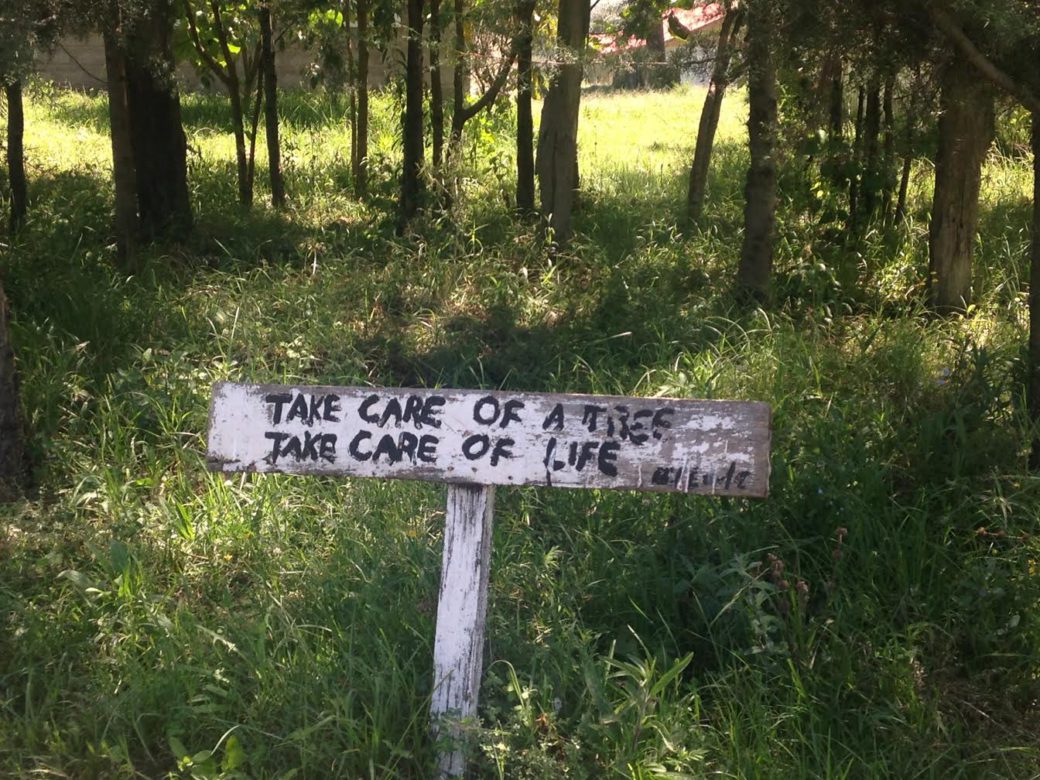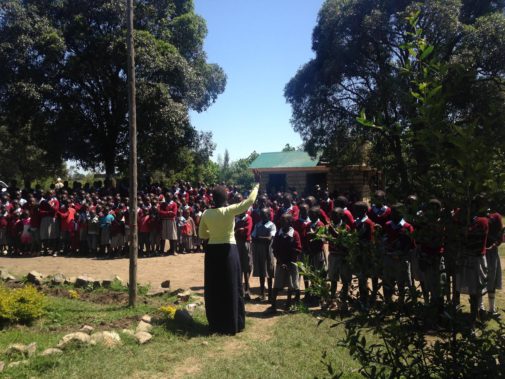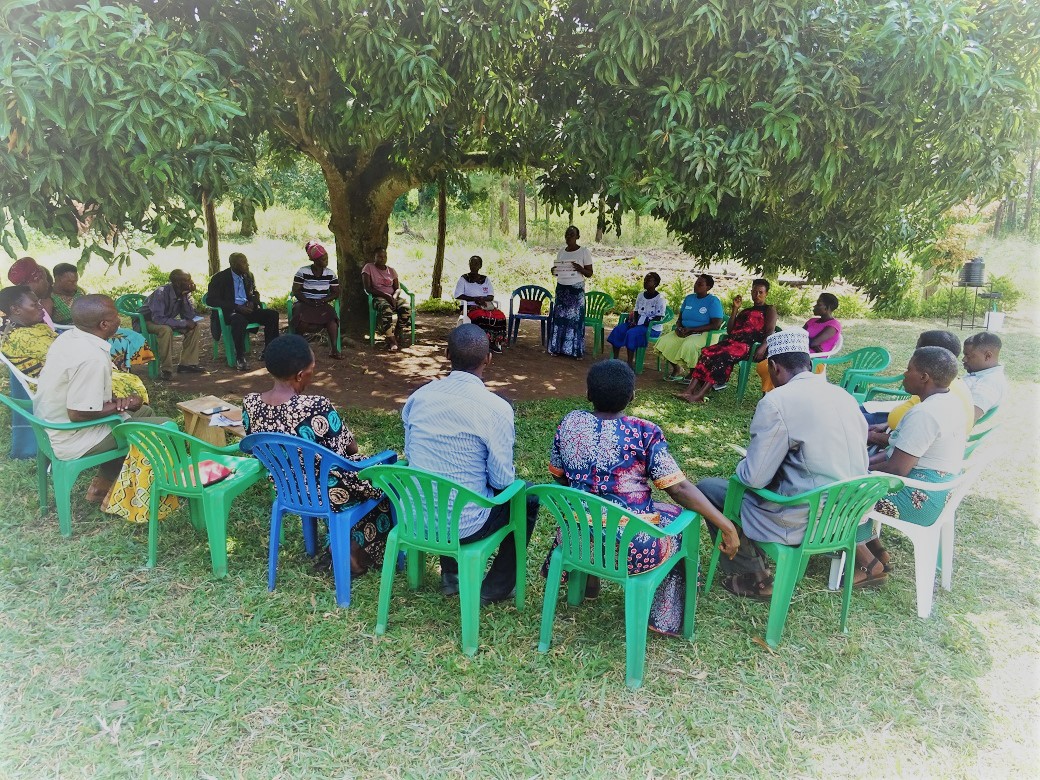Grassroots Communities’ conservation practices in Kenya receive award on World Environment Day

5 June, Nairobi: On this World Environment Day 2016, the Global Forest Coalition [1] and the Indigenous Environment Network [2] presented an award to indigenous women’s groups and local schools in Narok County, Kenya for their outstanding contribution towards biodiversity conservation and climate change adaptation.
Narok County is home to the Maasai Mara National Park, known as the main income generating National Park in the country, and home to the Great Wildebeest Migration considered one of the “Seven New Wonders of the World”. It also borders the Mau forest, one of the so-called “water towers” in Kenya. The area is of great ecological significance but it is witnessing various adverse effects related to climate change such as droughts, deforestation and loss of biodiversity, reduced water quality, receding water points, among others.
 The Engongu Entim womens groups and Narosura and Ereteti primary schools have planted a variety of tree species in various areas of the Narok County to provide different ecological benefits like water retention, windbreaks, shade, carbon and nitrogen fixing, and prevention of soil erosion. These conservation efforts also form part of environmental education and raising awareness for the youth. Over the last year they have planted close to 22,000 seedlings and have been taking care of the trees. They plan to continue their conservation efforts by involving other schools and women’s groups in the area.
The Engongu Entim womens groups and Narosura and Ereteti primary schools have planted a variety of tree species in various areas of the Narok County to provide different ecological benefits like water retention, windbreaks, shade, carbon and nitrogen fixing, and prevention of soil erosion. These conservation efforts also form part of environmental education and raising awareness for the youth. Over the last year they have planted close to 22,000 seedlings and have been taking care of the trees. They plan to continue their conservation efforts by involving other schools and women’s groups in the area.
“Governments must provide incentives for supporting such community conservation initiatives to conserve biodiversity and tackle climate change,” said Isis Alvarez of the Global Forest Coalition who visited the area and attended the recently concluded United Nations Environment Assembly (UNEA)[3], the highest environmental decision making body, that met in Nairobi from 23 to 27 May.
“Instead of supporting such local initiatives that strengthen community networks and their ability to respond to crisis, the UNEA ended with dangerous conclusions that encouraged the financialization of nature. This supports dubious schemes like Reducing Emissions from Deforestation and Forest Degradation and enhancing forest carbon stocks (REDD+). Take the case of World Bank’s Forest Investment Program [4], the largest REDD+ fund, which wrongly accepts commercial monoculture plantations as forests and allows funds to go toward their expansion.”
Monoculture plantations have been linked to land grabs, threats to local communities and biodiversity loss according to various GFC publications [5].
Notes
[1] Global Forest Coalition is a worldwide coalition of almost 80 NGOs and Indigenous peoples’ organisations from 53 different countries striving for rights-based, socially just forest conservation policies. Link: https://globalforestcoalition.org/
[2] The Indigenous Environmental Network is an alliance of grassroots Indigenous Peoples whose mission is to protect the sacredness of Mother Earth from contamination and exploitation, maintaining and respecting indigenous teachings and Natures law. Website: http://www.ienearth.org
[3] UNEA met from the 23-27 May 2016 at the UNEP headquarters, Nairobi, Kenya. See: http://www.iisd.ca/unep/unea2/
[4] Forest Investment Program, which is due to conduct official meetings on 16 June in Oaxaca, Mexico, falls under the World Bank-administered Climate Investment Fund (CIF). The FIP mainly aims to mobilize funds to provide direct forestry-related investments to developing countries to support their development and REDD+ objectives. GFC’s climate finance advisor Coraina de la Plaza is the Northern NGO observer to the FIP and will attend the meetings in Mexico See: https://globalforestcoalition.org/forest-investment-program-recent-developments/
[5] See the 50th edition of GFC publication ‘Forest Cover’ that highlights social and ecological impacts of monoculture plantations: https://globalforestcoalition.org/forest-cover-50/
Credit photo: Isis Alvarez
For more information/interviews please contact:
Ashlesha Khadse (Media Officer GFC)
Cell and whatsapp: +91 8600839193 (India)
Email: ashlesha@globalforestcoalition.org
Lucy Mulenkei (Indigenous Environment Network, Kenya)
Phone.0722-914-614/
mulenkei@gmail.com
Isis Alvarez (Global Forest Coalition)
+ 573156484656 (Colombia)
isis.alvarez@globalforestcoalition.org
Website: https://globalforestcoalition.org/media
Social media
Facebook: bit.ly/gfc123
Instagram: global.forest
Twitter: @gfc123











